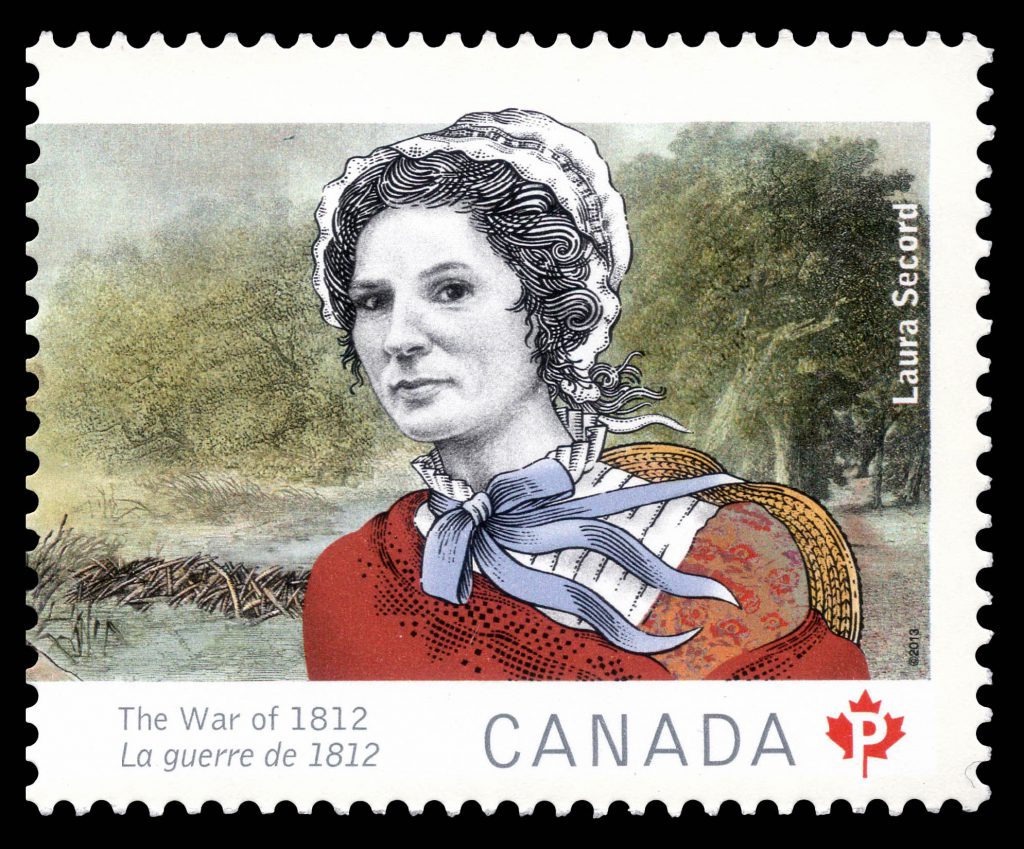On today’s date in 1813, Laura Secord learned of a planned U.S. attack before travelling more than 30 kilometres to warn British, Canadian and First Nation forces fighting during the War of 1812.
For the Canadians, the British and their First Nation allies, the second year of the War of 1812 brought disheartening defeats as well as notable victories. The United States invaded the Niagara Peninsula and marched on Montréal while the previous year’s successes of Brock, Tecumseh and other leaders were in jeopardy. Some communities in southern Ontario were now witnessing U.S. occupation, but the challenges of 1813 spawned heroes and heroines, who used their cunning bravery to change the course of the war.
In May 1813, U.S. soldiers captured Fort George and took control of both sides of the Niagara River. In occupied Queenston, U.S. troops billeted themselves in Secord’s household. On the evening of June 21, 1813, Secord learned of the secret attack plan that convinced her to travel more than 30 kilometres to warn Canadian forces and their allies.
Her renowned journey took her through fields, ditches and underbrush to avoid the roads where U.S. sentries stood watch. After 17 hours, she finally reached an encampment of First Nation warriors who brought her to British Lieutenant James FitzGibbon.
The information Secord disclosed proved vital in the successful ambush and defeat of U.S. forces at the Battle of Beaver Dams.
2013 SECORD STAMP
In 2013, Canada Post issued a Permanent stamp celebrating Secord as part of its War of 1812 series.
Stamp designer Susan Scott used a landscape design showing a summer forest for Secord’s 1813 adventure toward Beaver Dams. The house she left (located in present-day Niagara-on-the-Lake, Ont.) in the early morning of June 22 is pictured on the official first-day cover.
Challenged with maintaining historical accuracy and capturing these courageous acts, Scott turned to costume experts while injecting some drama into the stamps.
“Everybody knows Secord and her white cap but it’s very hard to make someone look heroic with that cap,” said Scott, of Secord’s portrait, which shows her hair escaping from beneath her headpiece, recalling her arduous 32-kilometre trek from Niagara-on-the-Lake to Decew House in Thorold.

